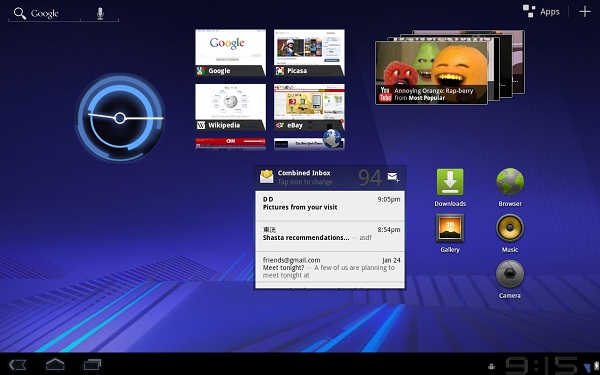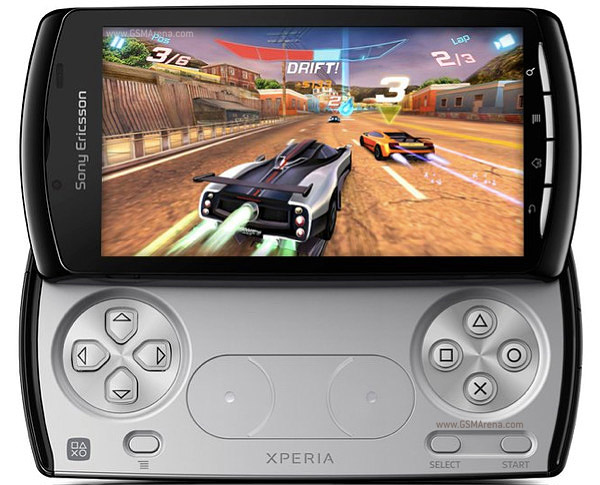Google is cracking down on Android’s “openness”. This much is clear.
And really, let’s be honest: Android never was fully open. If you wanted a full-service smartphone that used Google’s applications – Gmail, Maps etc. – you had to sign a contract with Google to use the OS in particular ways.
But now that Google are not letting Android 3.0 out into the world, it’s clear something is changing. Google are exerting more control over Android, and in comments on every story about it across the web, people seem a bit upset about it.
But a more closed, more tightly closed Android will be better for everyone. Here’s why.
A More Unified Experience
One of the great things about Android is that both you and manufacturers can customize it in any number of ways. That is also Android’s biggest downside.
Right now, because people can do whatever they want with Android, they can build phones/tablets/PMPs etc. that cut themselves off from the broader platform. A great example of this was Sony Ericsson and the Xperia X10. By building their (awful) Timescape and Mediascape applications into the OS of the phone, they made it incredibly hard for themselves to upgrade to new versions of Anrdoid. So buyers of a high-end Android phone were stuck with Android 1.6 or 2.1 and the numerous performance and interface issues of older versions of the OS.
By more tightly controlling Android, Google will have more say about the spread of new version of the OS, preventing the prevalent problem now in which numerous Android users cannot use various apps because they are waiting to be upgraded to new versions.
Moreover, some degree of UI standardization – both within the OS itself and between handsets – will make adoption of Android easier and more accessible as switching handsets will become more simple and straighforward.
It’s Still Open in the Right Ways
Even if certain aspects of Android become closed, as an OS, it’s still open in the ways it should be: apps. You can still develop apps of almost any sort for Android. Whether that’s replacing the stock keyboard with Swype, using Winamp for music or having notes from Evernote directly on your home screen, Android will still be adaptable and customizable in the way it matters: to users.
Whether Google are abiding by principles of open source or are distributing code back out into the programmer ecosystem is a separate issue from – and indeed, possibly even the opposite of – what is best for end users.
Manufacturers Will be Forced to Differentiate in New Ways
As it stands now, manufacturers of Android sets focus their differentiation on interface. HTC has their Sense, Samsung has TouchWiz and so on.
But if Google were to reign in the (let’s face it) often very bad additions to the stock Android UI, they’d have to find other ways to differentiate. And that means that rather than rebuilding their entire interfaces, they could one of two things: a) focus on apps that take advantage of distinct hardware features like the Xperia Play; b) build content solutions for Android, as this one way it severely lags iOS. Build out an easy way for Android users to get legit, new movies and TV shows, and Android manufacturers can distinguish themselves with ecosystems rather than silly widgets.
A Better Experience for End Users
If Google are ‘closing’ Android, then it’s happening in very specific ways: to limit the fragmentation of OS versions and interfaces; to limit the establishment of competing ecosystems.
But though there is much in that to debate, if one’s concern is what using an Android phone is like for end-users, then a little more control and centralization on the part of Google can only be a good thing.




it IS the right thing to do, but not what google has been trumpeting about the strength of the android platform. Indeed, openness in almost every form is touted as Android’s strength. Take that away and you take away that strength. Also: how do you know it will be “Open in all the right ways”? They could very easily lock that down too, if the apps don’t meet whatever restrictions they dream up.
One more thing: What’s the definition of open now, Rubin?
Did no one read this? http://android-developers.blog… Because, Honestly I completely disagree. If you have a rooted device like many people do, and you know what you’re doing then you have even more options. Why should we limit everyones options just because the majority of people out there don’t understand the more advanced features?
Because you are the minority and the “majority” as you say are the market that is paying for these phones and keeping android alive. If only tech people that rooted phones bought android handsets they wouldn’t exist. And if they don’t make Android appealing and easy to use to the vast, vast majority then they’ll leave Android. This article was written because he wants to see Android flourish and drive competition.
because the majority of people contribute to the majority of income.
I don’t think it’s such a good idea. Closed programming is essentially the privatization of ideas In a world that is rapidly becoming more and more idea-focused, that means a new type of corporate control. Not that corporations are necessarily evil, but it seems to be the trend. Too much power too easily leads to too much corruption.
And if people want to program things for it that branch away from it, that’s fine, but they don’t have to. But I think it’s healthy to have the choice.
The thing I hated most was my experience with Verizon.
I bought the first Droid version, and had all the nice Googleness that came with the original (nearly pure) OS. About 1 year later, all types of droids were available, and we got one for the wife. But by then, Verizon had wised up, and did some pretty snarky things to modify the OS.
First of all – Skype is now limited. Then, the default Navigator (which is one of the most useful apps – and completely free) in the newer version was actually replaced with one coded by Verizon. I needed to get somewhere fast, but what I got by default when I clicked the new Navigator button was an immediate demand for a monthly subscription fee in order to access and use it. It took a few minutes to delete that one, and download the real Navigator (all the while hoping Verizon hadn’t arbitrarily decided not to allow that app to compete with their version) . And then there’s the BING issue. No way to change the default search interface. Verizon had replaced Google with Bing – because of the far better experience that Bing gives users… uh, or maybe it was the load of cash MS paid Verizon. Voice search (the most often used Droid feature for me) was nowhere to be found, and more.
The market has changed. I don’t want a wireless service provider to limit my options. As long as I’m using the data and voice streams within reasonable limits, who cares what i do with my phone? Give me the phone service, and get all your OS crap out of my way. I want what I want, and you should be happy I’m willing to pay you for dropped calls and limited unlimited data plans.
I’d love to see stats on how many users actually buy any of the Verizon apps.
The right thing to do is for Google to require retailers to sell phones with ONLY the OS installed and not all the crapware that requires rooting to uninstall.
Four legs good, two legs better!
Is “Google are” really the proper grammar?
Why would “closing” android stop manufacturers from adding their own shells? I had a HTC windows mobile 6 before and it also had “Sense” same for sony ericsson wm6 phones. “Closing” Android will not make it IOS.
lol, google is dead. Try to change your launcher to different ADWLauncher or LauncherPro and put 50 apps there in the home shortcut. Everytime you reboot, you will see your phone lag a lot.
I also don’t like the fact android ads keep consuming my internet bandwith. I still prefer my iPhone than my Nexus One. Sure it’s more expensive but text ads are the most annoying thing ever made (fuck there’s no adblock plus on android)
Well written article. I doubt the Fanboys will understand but excellent suggestions for not only the business but for the vast majority of Android users as well.
hilarious.. now open source bad. If Sony wants to create a sad user experience for their consumer, its their right.
that’s the beauty of Open Source. Sony can F*** up their phone and create a sad user experience. HTC can do the opposite. Verizon can force Bing, and I as a consumer can mod the phone.
just root, ’nuff said
Closed is a bad model. The reason I went with an android phone and tablet is because I can somewhat easily push a custom ROM onto the hardware. Let the phone makers create as bloated a software product as they want, so long as we are allowed to take it completely off.
Your premises make incorrect assumptions. Firstly, if the OS was not as open for hardware manufacturers to do what they do (and in some cases badly) they may never have used Android at all. Now you have many different phones with very different OS’s and the entire OS could be bad. By allowing hardware manufacturers to chang ethe way Android works it gives them the incentive to use it. Whether or not those hardware manufacturers do “bad” things is not a fault of Android but a fault of the hardware manufacturer. I would rather have one bad part of an OS than a bad OS in general.
Hardware manufacturers already DO differentiate based on hardware. Thats why there are so many different devices out there running Android. I chose my phone based on hardware not on what Samsung may have done. I knew that if I bought a different Android device its still Android at its core.
If Google -did- close down Android as you suggest they should, it would be a very bad thing for adoption of the OS in the marketplace, not a good thing.
I’ve said it before and I’ll keep saying it because I think it’s true: Google is all over the place these days. When I first heard that Google was releasing a phone platform, I was excited. When I got a Droid, I was still excited. I’m still happy with it now. Android is the fastest-growing platform in the world, but the way in which Google administrates app development, etc. is admittedly flawed. The fact is, when an organization gets as big as Google is and starts doing a little bit of everything the way they are, changes are going to happen, and not all of them are going to be “cool” or popular. I’m not saying that what Google’s doing is necessarily good, I’m just saying it won’t be the last.